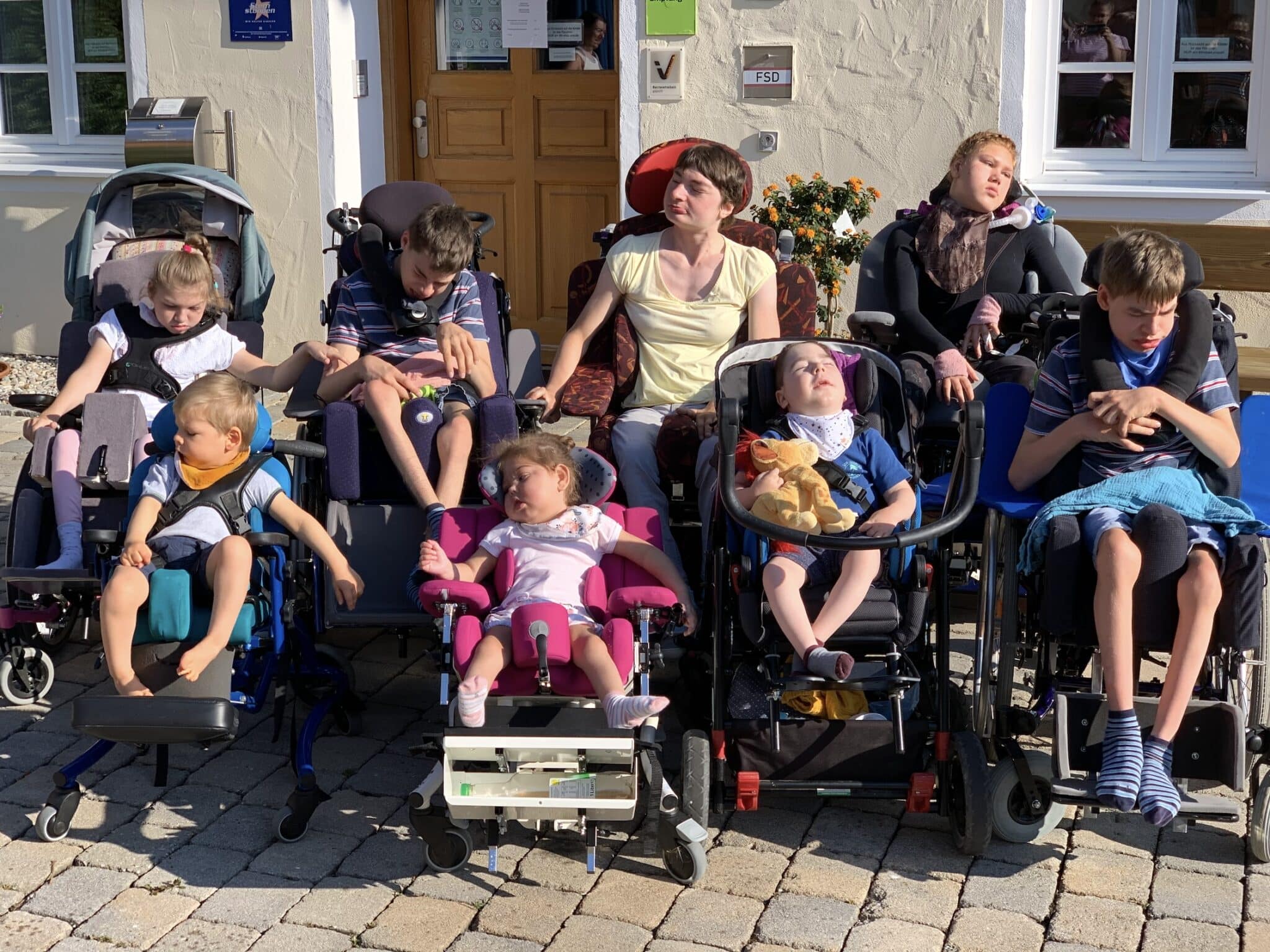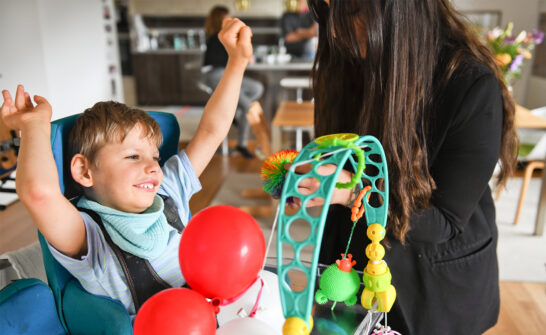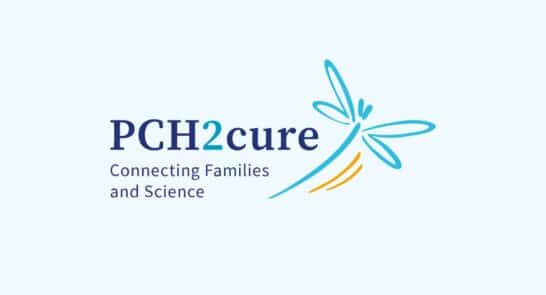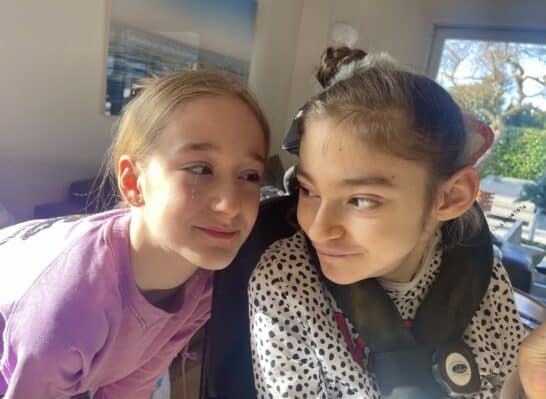What Is Pontocerebellar Hypoplasia?
Pontocerebellar hypoplasia type 2 (PCH2) is a rare, relatively unknown disease that causes severe physical and mental disabilities from birth and is often coupled with a reduced life expectancy in affected children.
PCH2 is a hereditary disease. It is characterized by an early-onset motor disorder and a reduced head circumference. Swallowing and feeding are major challenges in caring for affected children, and digestive problems are also common. The children experience pronounced sleep problems and often develop epilepsy as the disease progresses.
Pontocerebellar hypoplasia type 2 is considered one of the most care-intensive neurological diseases.
The children are often very irritable and require close supervision and extensive care. In addition to PCH2, there are other forms of pontocerebellar hypoplasia, which have varying characteristics and prognoses. While the physical and mental development of the children is severely impaired, slight developmental progress is almost always possible.
Diagnosis
Diagnosing “pontocerebellar hypoplasia type 2” takes into account the typical clinical symptoms and magnetic resonance imaging (MRI) of the brain. The diagnosis is then confirmed through a blood test. This also makes prenatal diagnosis possible in affected families.
Therapy
There is no known causal therapy for the disease. However, many of the symptoms can be treated, which significantly improves the quality of life of affected children and their families.
Relevant Terminology Relating to Pontocerebellar Hypoplasia
PCH2 is an autosomal recessive hereditary disease. The causative mutation for PCH2 was found in 2008. It is a mutation in the TSEN54 gene on chromosome 17q25.
Targeted movements, such as grasping, are severely impaired in PCH2 children. Instead, they exhibit distinctive movement patterns, usually in the form of sweeping, uncoordinated motions.
Due to cerebral malformations (especially an undersized cerebellum), children with PCH2 often stand out early on because of their small head circumference.
One of the main symptoms of the disease is indigestion, which manifests itself in acid reflux, bloating and irregular digestion.
Epileptic seizures are another common symptom, which can be difficult to treat or even resistant to therapy.
Eating and drinking proves very difficult for PCH2 children, as swallowing requires a high degree of coordination, which they usually lack. Nevertheless, some children can breastfeed, drink and eat pureed food. Many children are fed via a feeding tube at a certain age, however.
The life expectancy of affected children can range from an infantile death within the first few months to young adulthood. However, it has risen steadily in the past. In recent studies, up to 72% of children reached their 10th birthday.
Treatment Is Possible. We Can Find It With Your Help.
Please support the work of PCH2cure with your donation. The more funds we raise, the faster we can progress on the path to a cure.
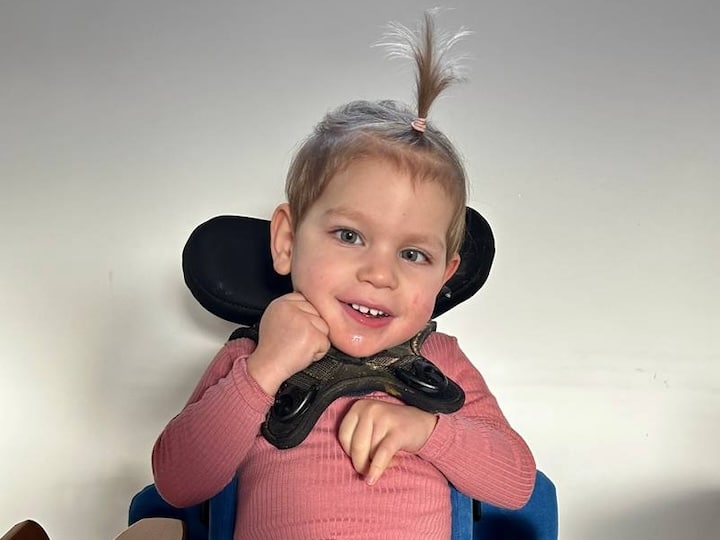
„No one is left behind. We strive for a world in which all diseases are curable – including rare diseases!“
Eva Luise und Horst Köhler Foundation
Key Stages of a Life With Pontocerebellar Hypoplasia
As the African proverb says, “It takes a village to raise a child!” This means that there are many more people who have an important formative influence on the child besides their immediate caregivers and family like parents, siblings and grandparents. The “village community” of a child with PCH2 may include, for example, physiotherapy, logopedics, occupational therapy, orthopedic technology, medical care, nursing staff, teachers, etc. More information for healthcare professionals can be found here.
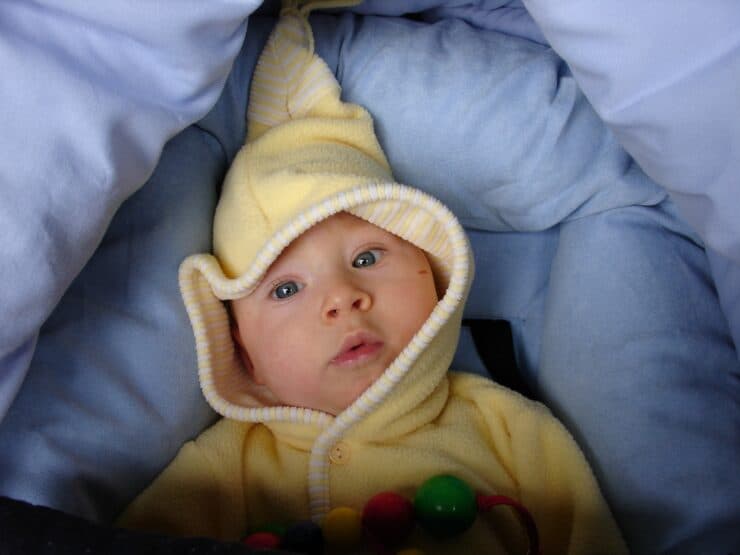
During the first two years with PCH2 children, the focus is usually on the diagnosis and how to respond to it. Families must find their own way of coping when nothing is as originally planned. But different does not mean bad.

Most PCH2 children go to a kindergarten, some to a special kindergarten, others to a regular kindergarten. Depending on the severity of the symptoms, the children are accompanied by a caregiver.
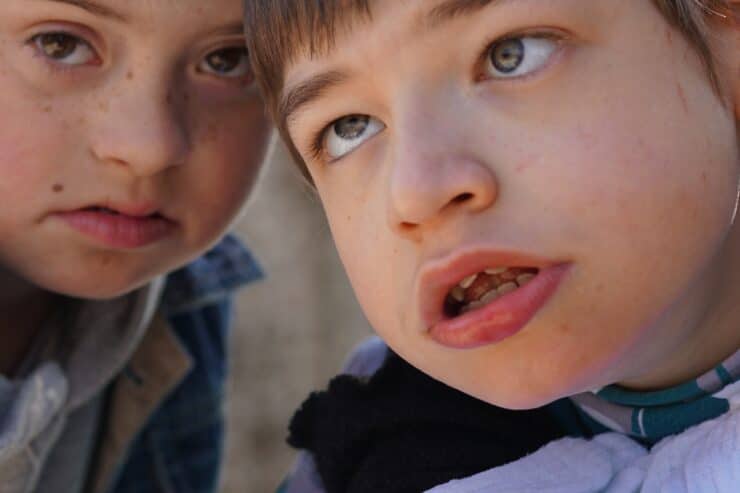
Starting school is also a big milestone for children with PCH2. Some of the children attend a school that offers joint lessons for children with and without disabilities. Others attend a special-needs school. Again, the children are accompanied by a caregiver during school depending on the severity of their symptoms. Read here an interesting interview with two teachers accompanying a child with PCH2 in their class through school.
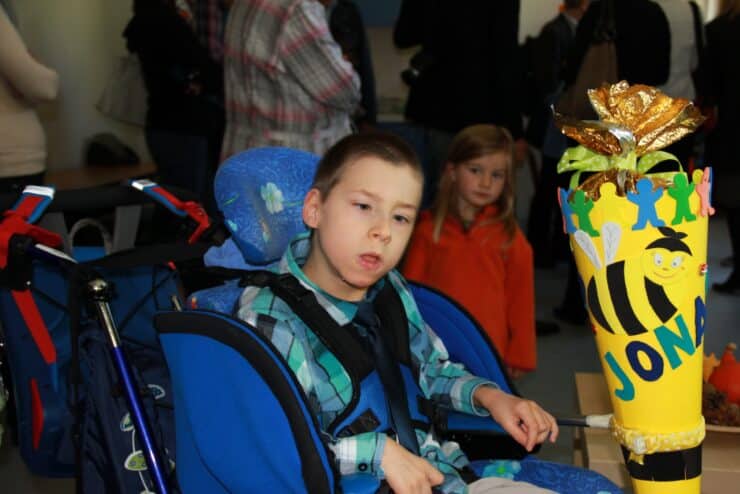
With the enactment of the UN Convention on the Rights of Persons with Disabilities and its gradual ratification in the individual countries, PCH2 children also have a right to education – together with their non-disabled peers. Here, we publish reports from all over the world about the school experiences of PCH2 children.
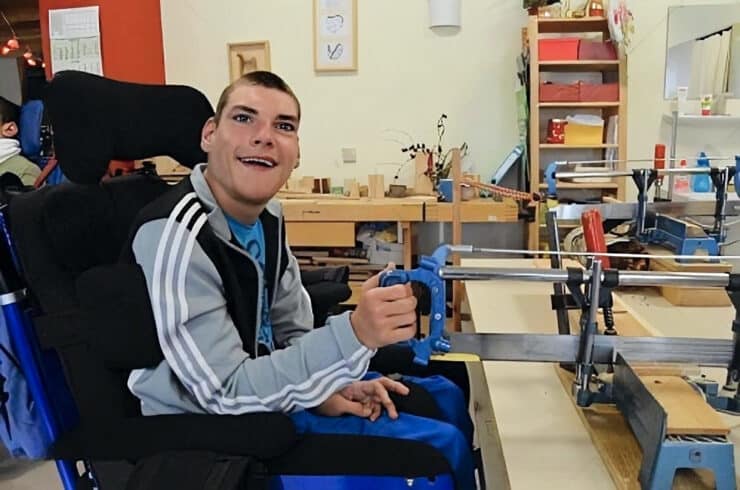
As there are now several PCH2 children who are well into adulthood, the question of what happens after school is raised regularly. The intended options vary greatly from country to country. Here, we publish reports from all over the world about the experiences of PCH2 children who have left school. Please contact us via the form if you would like to share your experience.
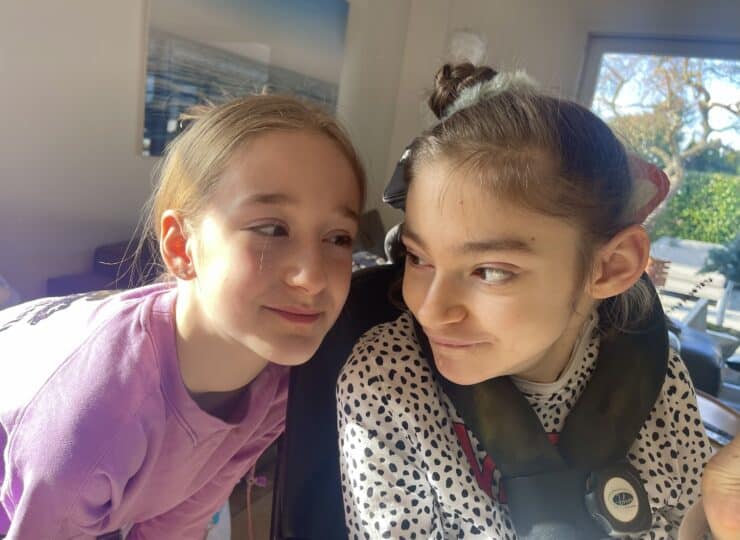
The vast majority of PCH2 children live at home with their families. Since caring for the children is very time-consuming and labor-intensive, the parents are ideally supported by nursing and care staff. Some PCH2 children also live in a care facility.
In the Family Portraits section you will find some individual accounts of these life stages.
Further Information in Our Brochure
You can find a detailed description of the disease and its symptoms as well as further scientific background in our patient brochure, available for download as a PDF file.
If you would like to receive a printed version of the brochure for a small donation, please send an email to .
